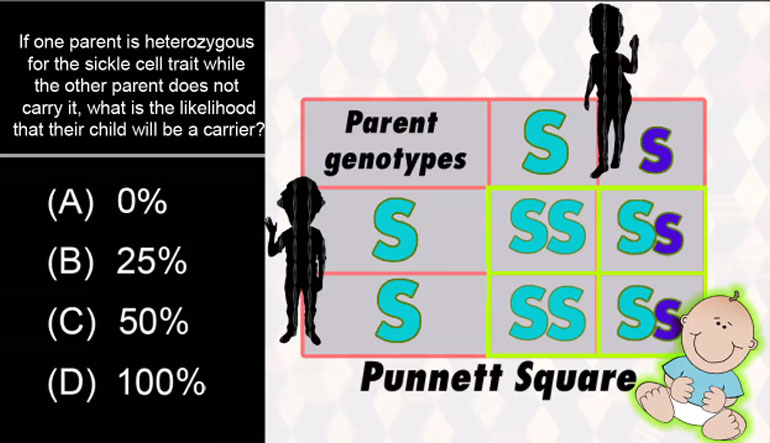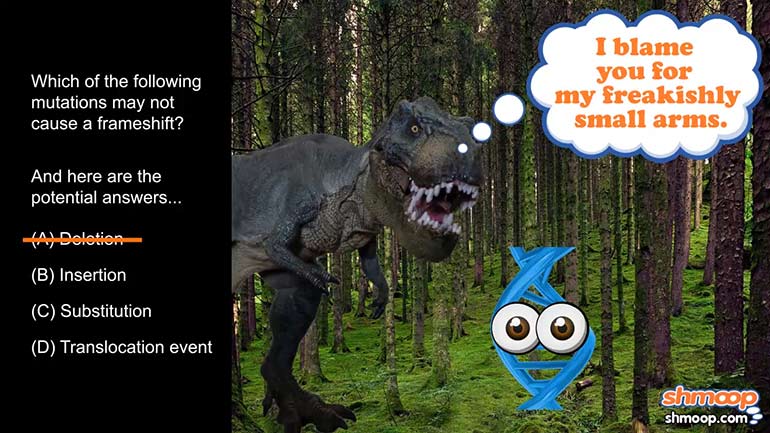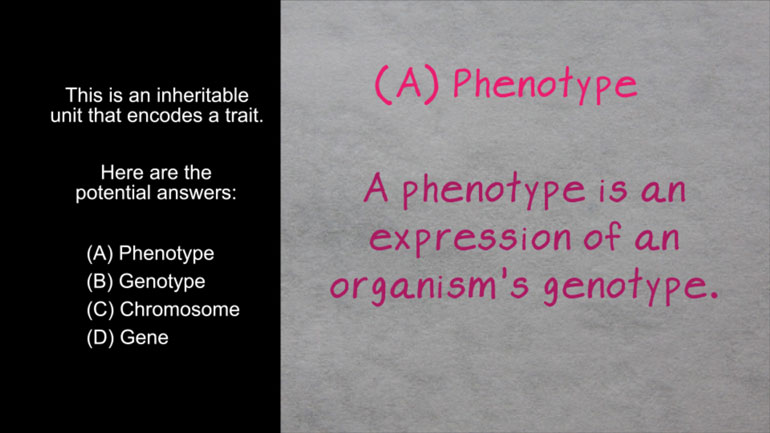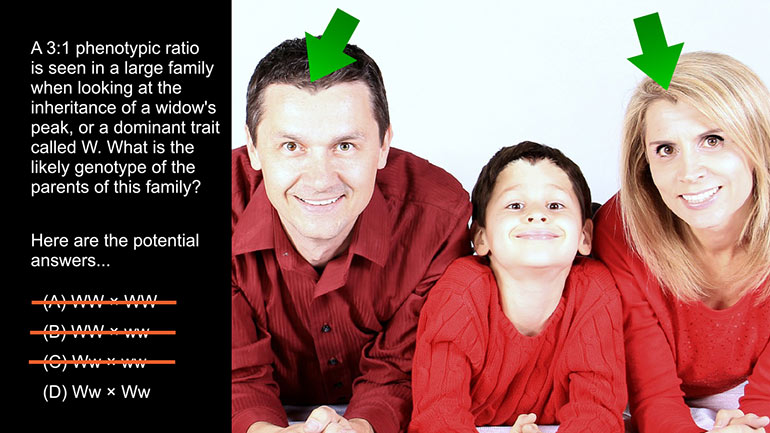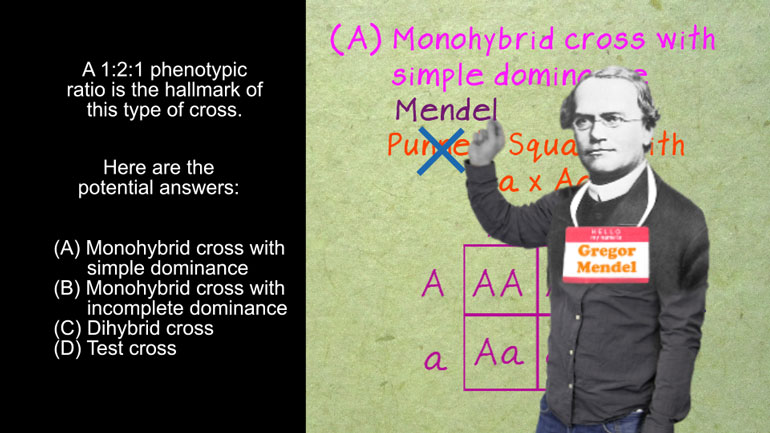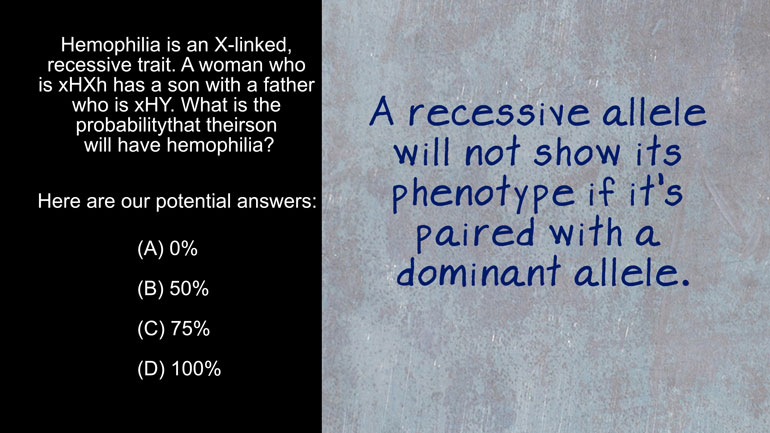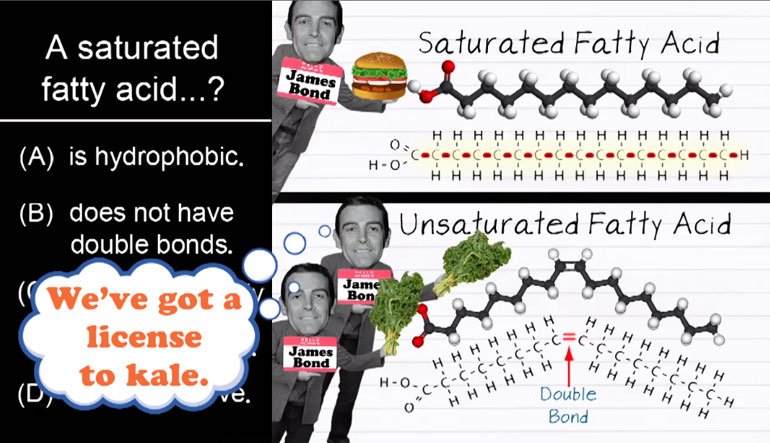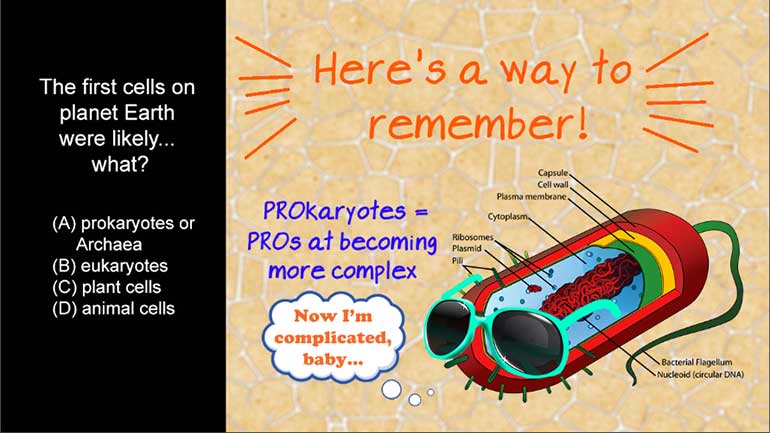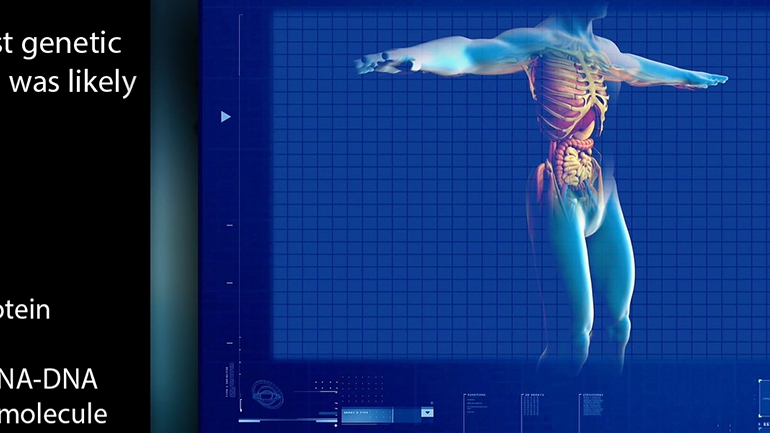ShmoopTube
Where Monty Python meets your 10th grade teacher.
Search Thousands of Shmoop Videos
Essential Life Process Information Videos 11 videos
AP Biology: Essential Life Process Information Drill 1, Problem 1. If one parent is heterozygous for the sickle cell trait while the other par...
AP Biology 1.5 Essential Life Process Information. Which of the following mutations may not cause a frameshift?
AP Biology 1.3 Essential Life Process Information. Which is an inheritable unit that encodes a trait?
AP Biology 2.5 Essential Life Process Information 7 Views
Share It!
Description:
AP Biology 2.5 Essential Life Process Information. What is the anticodon for the mRNA codon 5'AUG3'?
Transcript
- 00:04
And here’s your Shmoop du jour, brought to you by message machines. [Phone machine flashing]
- 00:07
Ever notice how they always seemed to cut off right before the important part of the–––
- 00:11
Okay, here’s our question:
- 00:15
The anticodon for the mRNA codon 5’AUG3’ is….
- 00:24
And here are our potential answers… First, let’s look at what kind of nucleic [Man holding a magnifying glass]
Full Transcript
- 00:29
acid we’re talking about here… mRNA, otherwise known as messenger RNA.
- 00:35
So we know this is a DNA message that’s being sent out into the cell.
- 00:39
We also know that mRNA should try texting now and then…seriously, who leaves messages [mRNA texting as people laugh]
- 00:44
anymore…? Alright, well RNA is different from DNA in
- 00:47
a variety of ways – it’s single stranded, uses a different sugar in its backbone, and [DNA and RNA stood together]
- 00:54
it uses a different nitrogenous base. They also start with different letters…
- 00:59
Bet you didn’t have that difference on your list. That’s why they pay us the big bucks.
- 01:03
Instead of thymine, RNA uses a base called uracil.
- 01:07
So we can automatically eliminate A and C, as there’s no U for uracil to be seen. [Answers A and C crossed out]
- 01:12
That leaves us with two choices: to B, or not to B…or…to D…or…not…
- 01:16
You get the idea. Let’s take a look at the word anticodon. [Hammer slices word anticodon]
- 01:21
We see “anti” and “code”. What does that mean?
- 01:25
Basically, an anticodon is the opposite of what is being coded. So we need to find the
- 01:29
bases complementary to the ones being encoded by the mRNA. [tRNA molecules added to an mRNA strand]
- 01:32
Remember the base-pairing rules from DNA? A pairs with T and G pairs with C?
- 01:39
Now we’re in mRNA world, so A pairs with U and G…well, G isn't a fan of change. G
- 01:45
still pairs with C. More letters? And we were still wrapping our [Letters floating around mans head]
- 01:49
heads around the whole “R” and “D” difference…
- 01:51
So let’s just write down the opposite of what was coded, “AUG.” A goes with U,
- 01:57
U goes with A, and G goes with C. So the anticodon is UAC. You see?
- 02:04
Now for take two on that message…and we hope we get to finish, because this is important,
- 02:09
make sure you don’t open the–––– [man runs to telephone to answer the message]
Related Videos
AP Biology: Essential Life Process Information Drill 1, Problem 1. If one parent is heterozygous for the sickle cell trait while the other par...
AP Biology: Biological System Interactions Drill 1, Problem 1. Complete the sentence about a saturated fatty acid.
AP Biology: Evolution Drives the Diversity and Unity of Life Drill 1, Problem 1. The first cells on planet Earth were likely what?
AP Biology: Free Energy and Molecular Building Blocks Drill 1, Problem 1. Which statement incorrectly describes the properties of water?
AP® Biology: Evolution Drives the Diversity and Unity of Life Drill 1, Problem 2. What was likely the first genetic material?
